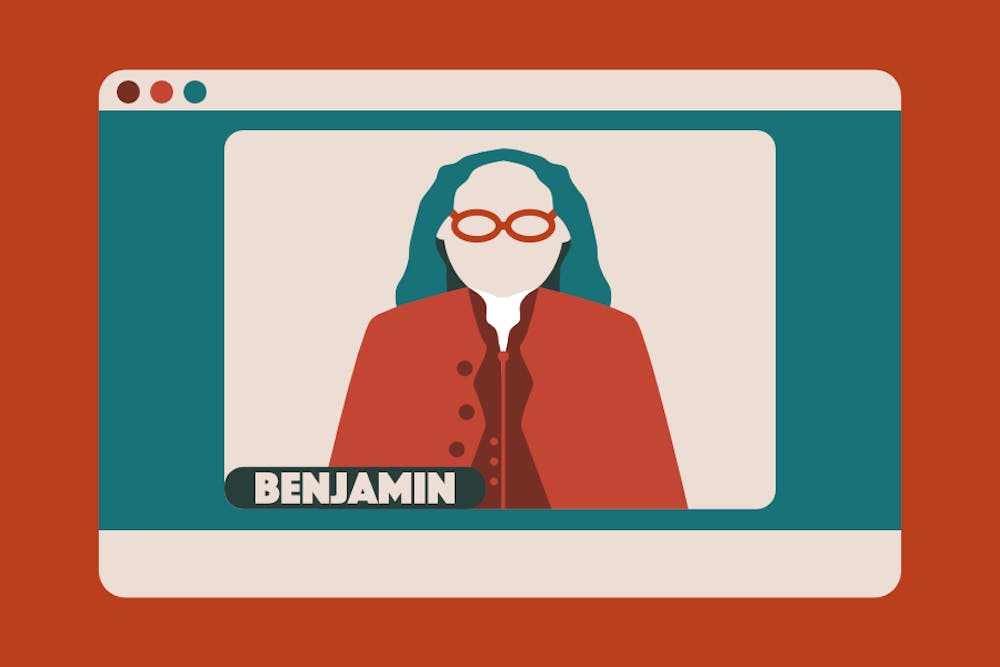
Penn Benjamins used to be the University’s only in-person peer counseling group. Since COVID-19 forced Penn to shut down in March 2020, the group moved its services online in hopes that students would continue to utilize the resource to deal with challenges presented by the pandemic.
Founded in 2014, Penn Bens trains its counselors using a set of modules certified by Counseling and Psychological Services. Without its physical presence in Huntsman Hall and Van Pelt Dietrich Library, the group faced some initial challenges in the fall semester, but Penn Bens has ultimately been able to increase turnout this spring.
College junior and Penn Bens Secretary Rachel Pak said turnout increased after the group switched from the platform OHQ to Zoom for its virtual sessions.
“[OHQ] was pretty complicated, and the barrier to entry was pretty high,” Pak said.
College junior and Penn Bens External Director Darya Bershadskaya said the initial switch to remote counseling required club members to figure out ways to actively ascribe meaning to all of their virtual interactions.
She added that Penn Bens tries to replicate the in-person experience by enabling the camera function on Zoom, but it still isn't the same as face-to-face counseling.
“There’s something about the physical act of hearing someone’s story,” she said.
Bershadskaya began counseling for Penn Bens during the fall of her sophomore year. In her role, she aims to emphasize the idea that college is emotionally difficult despite the popular perception that it’s the best four years of someone’s life.
“We’re all grappling with this profound sense of loneliness and unease,” Bershadskaya said.
Nursing senior and Penn Bens peer counselor CJ Mangubat agreed that college students need a lot of support. She decided to join Penn Bens because of her passion for supporting people when they’re going through difficult situations.
Mangubat said she was disappointed that counseling had to be moved online because the remote environment has made it difficult for services to reach students given that many of them were not aware of Penn Bens before the pandemic. She added that she is grateful more students have been able to utilize Penn Bens since it switched to Zoom this spring.
“My hope is that more people know about us, and what we do, and are more inclined to stop by our counseling hours,” Mangubat said. “Penn Bens is a way for people to feel connected and heard. It’s nice to have validation when we’re struggling during these times that we feel alone.”
Bershadskaya added that it is particularly difficult to be vulnerable with someone on Zoom. She said one of her goals for Penn Bens in the coming semesters is to continue fostering a sense of community during isolating times.
“It’s nice to know that someone is going to vibe with you no matter what," she said. “You have the assurance when you come in for peer counseling that they care.”
Penn Bens offers its services Sundays through Thursdays from 8-11 p.m. ET via Zoom.
The Daily Pennsylvanian is an independent, student-run newspaper. Please consider making a donation to support the coverage that shapes the University. Your generosity ensures a future of strong journalism at Penn.
Donate






